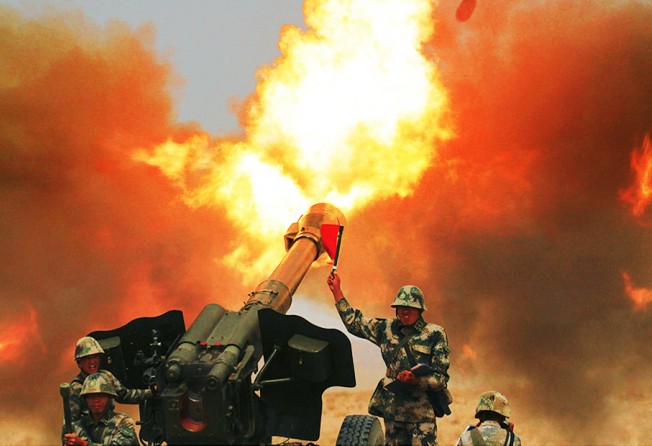PLA's drills may help Shinzo Abe's cause to lift ban on army, expert says
Increased tension may give Japanese PM more support to lift ban on army

China's massive live-firing drills, while meant to be a warning to Japan for lifting its 60-year-old military ban, may instead serve to further Japanese Prime Minister Shinzo Abe's cause to normalise the army, an expert says.
The People's Liberation Army Navy last Saturday started a spate of drills in its northeast waters, East and South China seas that will last until next Tuesday, involving all three of its naval fleets.
It is also holding a three-month land drill involving 10 brigades from six of its seven key military commands, that will include rocket projectile, artillery and land-to-air exercises, the Chinese Defence Ministry said.
Japanese political analyst Hiroko Maeda said the drill may increase tension in the East China Sea, where Beijing and Tokyo have territorial disputes over the Diaoyu Islands, known as the Senkakus in Japan.
The heightened tension might help Japanese Prime Minister Shinzo Abe garner more support for his campaign to normalise the military, she said.
"The possibility that Abe can push through [his plan] by the end of the year has become higher because of the PLA's activities," said Maeda, a research fellow with the Centre for International and Strategic Studies in Tokyo.
She said Abe's drive to reinterpret "collective self-defence" in Japan's constitution had met strong public opposition.
Although the resolution - permitting the use of force to defend another country under attack - was adopted by the cabinet on July 1, it still has to be scrutinised by the Diet later this year before it can be passed.
Once passed by the Diet, Japan's Self-Defence Force could then for the first time in more than 60 years be deployed to fight on foreign soil, she said.
Maeda added that she believed a motivation for China's military drills was to "give warning" to the US-Japan alliance.
Shanghai-based naval expert Ni Le Xiong said: "Such massive military drills are very rare and significant as these exercises have been used only during sensitive anniversaries." He was referring to the outbreak of the first Sino-Japanese war on July 25 in 1894, Japan's surrender on August 15 in 1945 and the Mukden Incident on September 18 in 1931.
Beijing-based retired PLA senior colonel Li Jie said the drills were also a reaction to the United State's joint drills this week with Japan and India.
"The PLA has not been in war for decades. It should catch up with Western countries in both military capability and capacity though intensifying live-firing drill scales and complex," he said.
Robert Thomas, vice-admiral of the US 7th Fleet, said the Pentagon had expected China to keep up a "steady drumbeat" of military exercises in the region.
"This is a natural evolution for the PLA Navy ... You should expect more exercises, and frankly, more complex exercises," he told reporters at the opening ceremony of a bilateral naval exercise with Singapore yesterday.
Additional reporting by Bloomberg